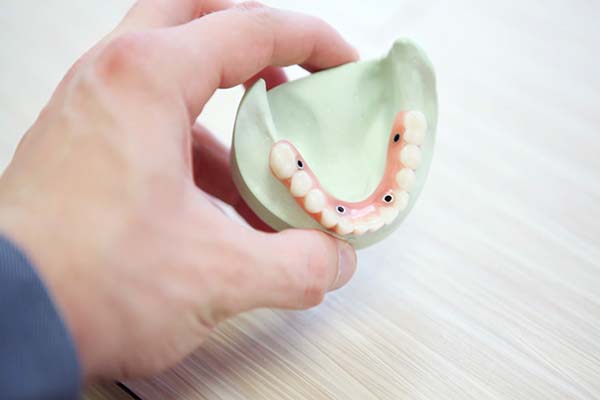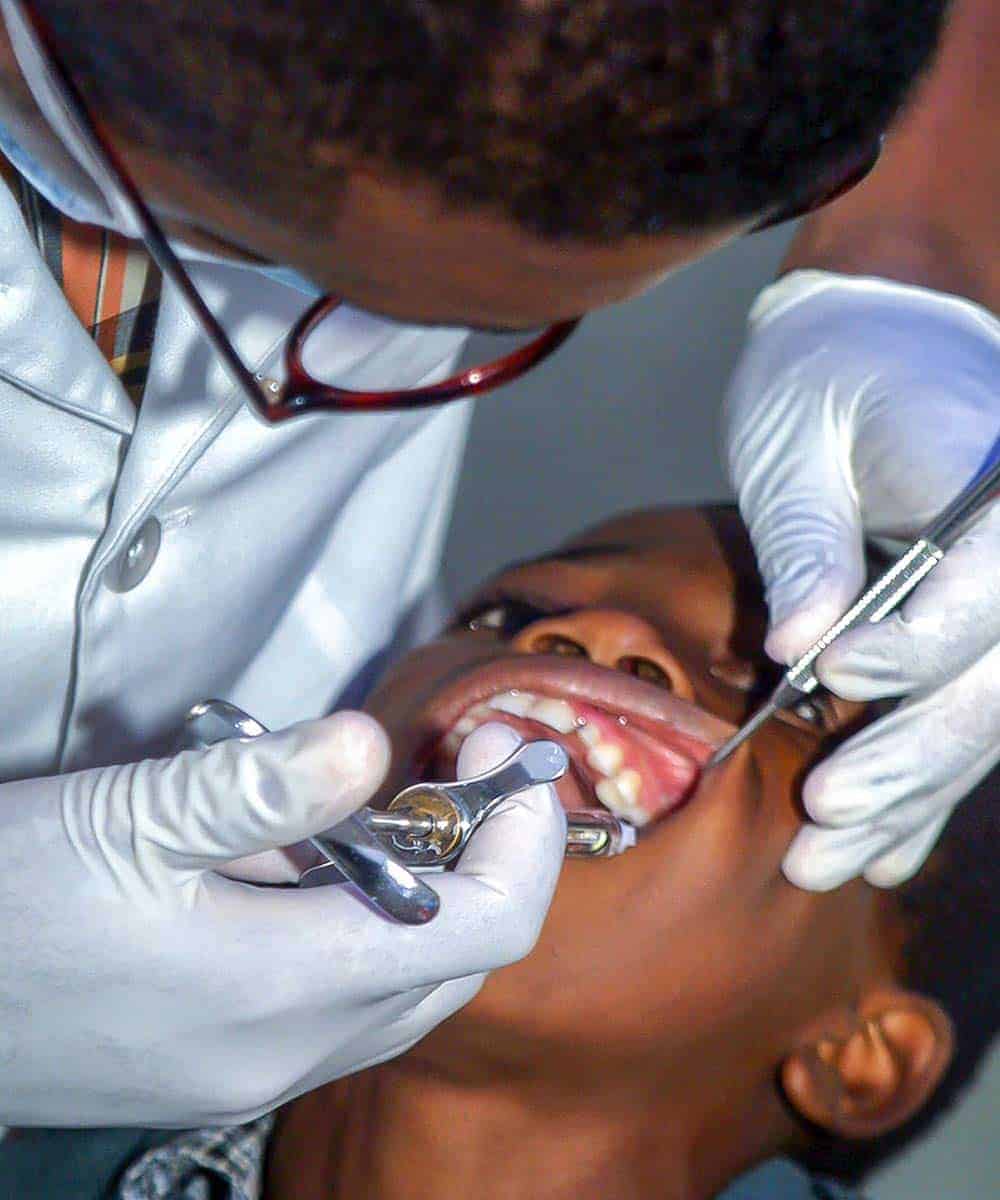How to Get Rid of Numbness From Dentist Faster
After dental work, the next thing you should be thinking of is how to get rid of numbness. And talking about dental work, I mean crown and root canals, including fillings and other procedures. However, what causes this numbness is the anesthetic given to patients. It makes the tongue, cheeks, and lips numb for some time. After the procedure, this numbness can last for 2 hours or longer.
So, if you are worried, here's how to get rid of numbness from dentist.
You need to seek permission from your dentist on physical activities that can increase blood flow and improve your condition naturally. You can decide to take a walk or be more active. These two activities can help to reverse the numbness. You can also rinse your mouth with warm salty water or massage in the affected area gently. Again, you can urge your dentist to administer OraVerse injection after the dental work. This injection can help to reverse the numbness the anesthetic has created much quicker.
So that's it about getting rid of numbness from dentist after dental work. And it's something everyone needs to know. However, I provided other information about this topic that I would like you to check out. So, continue reading!
Anesthesia Numbness: Why Do Dentists Administer Them?

You might have heard about some patients experiencing numbness after dental work, which lasted for a while. It's scary, I know. But knowing the reason dentists administer local anesthetic would help you to feel a bit more relaxed.
Anesthetic is essential when you visit your dentist for dental surgery. The work of the medication is to help prevent pain that may occur in a particular area of one's mouth. It's also administered before treatment commences.
Now what this medication does is to ensure nerves don't transmit any message of pain to the brain. When it doesn't, you won't feel any form of pain when injected or during the operation. Most dentists also apply a unique kind of topical anesthetic before injecting their patients with the local anesthetic. The topical anesthetic helps in soothing the mouth sores too.
How Long Local Anesthetic Takes To Go Away ?
Most people are not only concerned about being injected with anesthesia before dental work. What bothers them most is being numb in some regions of their month for a specific period. The thought alone is scary, and it makes going for dental work a "mission impossible" for many.
But the truth is anesthesia is necessary for specific dental treatments. As I earlier said, it will help ensure you don't feel a single pain throughout the entire procedure. So there's no need to be afraid. The numbness will only last for a couple of hours, and everything will return to normal. You won't be permanently numb.
However, the duration of time it will take your anesthetic to wear off completely depends on the type of anesthetic. It might take between 3 to 5 hours for this to happen.
Anyway, that's the length of time it usually takes for the local anesthetic to wear off. But let me also remind you that it can also vary, depending on the anesthetic you are using. Another thing you need to understand is that the time it takes for your treated tooth to be free of the numbness varies from that of your tongue and lips.
Your tooth will remain dumb for at least 1 to 2 hours, while your tongue and lips will remain numb for a period of 3 to 5 hours. I mean, starting from the exact time the injection was given. And as I said before, the numb feeling might not be permanent. It's rare to find numbness from the dentist become permanent.
Another thing you need to know about getting rid of numbness is that the blood has a huge role to play in it. As the blood flows and carries the anesthesia away from the injection point, the numb feeling one has, wears off. The blood usually takes the anesthesia to the point where it can be metabolized or broken down. At this point, it will become ineffective.
So how can you get rid of this numbness after dental work quickly?
Well, as I earlier said, you have to be more active. You shouldn't just sit there expecting the numbness to go away immediately. You need to get moving. But keep in mind that your doctor needs to be aware of your decision. Do not engage in any physical activity without first seeking your doctor's opinion.
Every surgery is delicate. And there are things one is expected to do and avoid. Going ahead with physical activity without consulting your doctor shouldn't be part of your agenda. But really, being active can help restore the numbness quicker than you can ever imagine.
I also spoke about using treatment to restore numbness. It's quite an effective and quick way to regain you. You can use the OraVerse injection. It is administered after surgery is complete to address the numbness. However, a trained dentist, precisely the doctor who handled your dental work, should be the one to administer this injection.
The good thing about OraVerse is that it can help you get rid of the numbness twice as quick as any other means. That's why most people prefer it to other methods for reversing numbness. But you need to understand that the injection isn't free. It cost $25 to $75.
Now here's one thing you need to know about OraVerse.It is useful and has been applauded by dentists and health practitioners across the globe. But it's not covered by dental insurance. So, if you need OraVerse, you have to be ready to fund it out of pocket.
Types Of Local Anesthetic Used For Dental Work

Well, a lot of persons who know about dental work or have had one might know something about anesthesia administered before dental work starts. One of them is Novocaine. It's one of the oldest anesthesia used for dental procedures.
But now, things have changed. Novocaine has lost its place as the local anesthetic commonly used for dental treatments. The reason is that many individuals are allergic to the byproduct produced when the drug is metabolized.
Of course, no one would like to suffer the discomfort Novocaine could cause. So, the quest to source for a new local anesthetic that only a few persons might be allergic to was rekindled. Today, we have a set of local anesthetic considered more effective. They are known asarticaine orlidocaine. These drugs are considered more effective than Novocaine, and only a handful of people are allergic to them.
So, if you are allergic to Novocaine, you can ask your dentist to administer articaine or lidocaine. These two are potent and tends to be more effective than the old-school Novocaine. Again, if you are having problems getting numb, request the dentist to administer articaine.
A paper published by the highly reputable American Dental Association hinted that articaine delivered anesthesia more profound compared to other anesthetics used for treatment. And this includes lidocaine. Its success rate at numbing most patients who had problems becoming numb is 54 percent.
Things You Need To Know About Local Anesthetic
Before you proceed with your dental operation, it would do you a world of good to ask all the questions you can. Let your dentist explain the procedure and feeling after the treatment. Here, I will try to explain some of the outcomes of dental treatment that involves the use of local anesthetic. Let's go over the things you need to know before surgery.
The first thing you need to understand is that if you are going to have a surgical operation, your dentist has to inject and numb the tissue or skin in the area. This involves injecting a local anesthetic, which could either be Novocain, articaine, or lidocaine.
Now I would like you to understand the injected area won't feel the same. It could either become tight or swollen once injected. You will also see minor bleeding in the injected area, into the dressing. It's usually, so you shouldn't panic!
You will also discover that you need to take pain relief when the anesthetic wears off. It is a normal thing to do. Don't just rely on the injection you took to reverse the numbness. Examples of pain killers include Paracetamol, ibuprofen (anti-inflammatory), and tramadol. But remember that you can't just take tramadol. It has to be prescribed by a doctor.
How Does The Anesthetic For Dental Surgery Work?
I know a lot of people are curious about how the anesthetic work. Well, it works by blocking nerves responsible for transporting pain signals to one's brain. That's why when the anesthesia starts wearing off. You will be feeling some form of tingling sensation. It always happens like this. And it's not only for dental surgery but other surgical procedures.
Conclusion
So now I presume you know how to get rid of numbness from dentist. Well, it's easy, and there are diverse ways you can achieve this, as you can see. You should also know that it's rare for numbness caused by anesthesia to be permanent. Plus, it's essential to use an anesthetic before the surgical procedure begins. The work of the anesthetic is to eliminate pain and make the patient calm during the operation. It's difficult to withstand the shocks from the surgery. So, anesthetic is needed.
You May Like These Articles As Well:
What Did Neanderthals Look Like?
How To Keep Urine Warm For Drug Test
How to Get Rid of Numbness From Dentist Faster
Source: https://www.mainenewsonline.com/how-to-get-rid-of-numbness-from-dentist/
